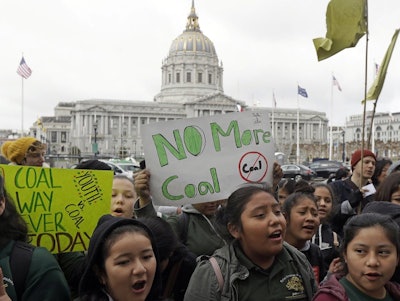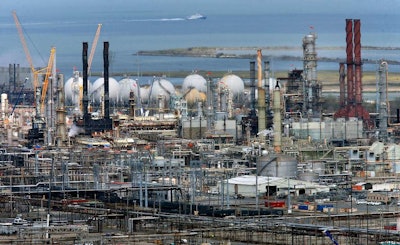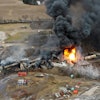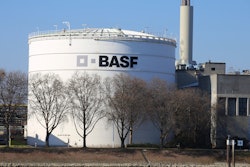
A wave of legal challenges is washing over the oil and gas industry, as over nine cities and counties are filing lawsuits in an attempt to hold the world’s biggest oil companies accountable for climate change and environmental protection.
The lawsuits are targeting oil giants BP, Chevron, ConocoPhillips, Exxon Mobil, and Royal Dutch Shell. The suits allege that the companies knowingly engaged in business that was detrimental to each localities economy, infrastructure, and environment.
Since the summer of 2017, a growing list of cities and counties have been filing lawsuits against oil companies, including, New York City, Baltimore, municipalities in Colorado and Washington, and eight cities and counties in California. In June 2018, Rhode Island became the first state to sue fossil fuel companies in an attempt to hold them responsible for the effects of climate change.
Some lawsuits seek unspecified damages, while others demand that the companies fund climate change mitigation efforts.
The lawsuits make a public nuisance claim and, in some cases, allege negligence. The plaintiffs argue that oil and gas companies have known for decades that burning fossil fuels is one of the biggest contributors to climate change, and, instead of acting to reduce harm, the companies attempted to undermine climate science and mislead the public by downplaying the risk.
"For 50 years, these companies have known their products would cause rising seas and the other climate change-related problems facing Baltimore today," said Baltimore Solicitor Andre Davis. "They could have warned us. They could have taken steps to minimize or avoid the damage. In fact, they had a responsibility to do both, but they didn't, and that's why we are taking them to court."
 In this Feb. 28, 2018, file photo, students rally for clean energy in front of San Francisco City Hall. A U.S. judge who held a hearing about climate change that received widespread attention has thrown out the underlying lawsuits that sought to hold big oil companies liable for the role of fossil fuels in the Earth's warming environment. Judge William Alsup in San Francisco said Monday, June 25, 2018, that Congress and the president, not a federal judge, were best suited to address fossil fuels' contribution to global warming. (AP Photo/Jeff Chiu)
In this Feb. 28, 2018, file photo, students rally for clean energy in front of San Francisco City Hall. A U.S. judge who held a hearing about climate change that received widespread attention has thrown out the underlying lawsuits that sought to hold big oil companies liable for the role of fossil fuels in the Earth's warming environment. Judge William Alsup in San Francisco said Monday, June 25, 2018, that Congress and the president, not a federal judge, were best suited to address fossil fuels' contribution to global warming. (AP Photo/Jeff Chiu)The chain of lawsuits started back in September 2017 when San Francisco and Oakland sued the five oil companies, concerned that rising sea levels and flooding, which are believed to be the result of global warming, is already causing problems.
The suits, filed separately in Superior Court in San Francisco and Alameda County, claimed oil, gas, and coal producers not only caused the heat-trapping gases that drove sea level rise, but knowingly did so. Both cities asked the companies to pay billions in compensation for past and future flooding, coastal erosion, and property damage resulting from climate change.
Despite their attempts, U.S. Judge William Alsup ruled that Congress and the president were best suited to address the contribution of fossil fuels to global warming, throwing out California’s two cases against Big Oil.
"The problem deserves a solution on a more vast scale than can be supplied by a district judge or jury in a public nuisance case," he said.
These recent lawsuits aren’t the only attempt to hold Big Oil accountable for its environmental impacts. Over the past few years, two states have launched fraud investigations into Exxon over climate change. The Trump administration also came under fire by young environmentalists who claim the government is failing to protect future generations from climate change.
Baltimore on Friday become the latest U.S. city to try and hold the world's biggest oil companies financially responsible for global warming, asserting it faces massive costs to effectively protect its residents, businesses, and infrastructure from the escalating impacts of climate change.
The court battles over climate change come amid a political divide in the United States over how government should respond.
 The Chevron refinery in Richmond, CA., as seen on Tuesday September 12, 2017. A new study is laying blame for the warming of the planet on 90 companies, with Chevron and Exxon squarely at the top of the list. (Michael Macor/The Chronicle)
The Chevron refinery in Richmond, CA., as seen on Tuesday September 12, 2017. A new study is laying blame for the warming of the planet on 90 companies, with Chevron and Exxon squarely at the top of the list. (Michael Macor/The Chronicle)On Thursday, a U.S. judge rejected New York City's lawsuit targeting oil companies, saying the issue must be addressed by Congress and the executive branch. U.S. District Judge John F. Keenan said global warming is a problem best left to the other two branches of government.
"The immense and complicated problem of global warming requires a comprehensive solution that weighs the global benefits of fossil fuel use with the gravity of the impending harms," Keenan wrote in his decision.
President Donald Trump has expressed doubt about the threats posed by climate change, and announced that the U.S. will withdraw from the Paris climate accord that seeks to limit global temperature warming. Meanwhile, he has shown support for the U.S. coal, natural gas, and oil industry.
Supporters are calling these lawsuits the next big strategy in combating climate change, mirroring prior tactics used against Big Tobacco. The Center for Climate Integrity advocacy group applauded Baltimore's effort, describing it as "the next in a growing wave of climate liability lawsuits."
"The people of Baltimore deserve their day in court," said Richard Wiles, executive director of the Washington-based organization.
Critics, on the other hand, question the validity of the plaintiffs’ legal claims.
"To litigate such an action for injuries from foreign greenhouse gas emissions in federal court would severely infringe upon the foreign-policy decisions that are squarely within the purview of the political branches of the U.S. government," Keenan said.
Historically, climate lawsuits have not enjoyed much success in court. According to Ann Carlson, a professor of environmental law at UCLA, all of the climate change cases against the oil companies during the Bush administration were dismissed before plaintiffs got a shot at discovery. “It would be path-breaking for a court to decide that these cases could go forward,” Carlson says.
Regardless of the previous lawsuit rejections, there are likely multiple appeals ahead—whichever side loses will appeal it up to the Ninth Circuit, and onwards. The final stop is the Supreme Court, says Pat Parenteau, professor of law at Vermont Law School.
“It’s too early and too speculative to say whether the Supreme Court would ever take an appeal,” he said.
 (Illustration: Alex Castro/The Verge)
(Illustration: Alex Castro/The Verge)





















